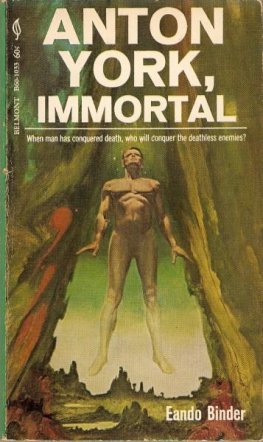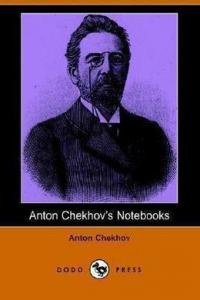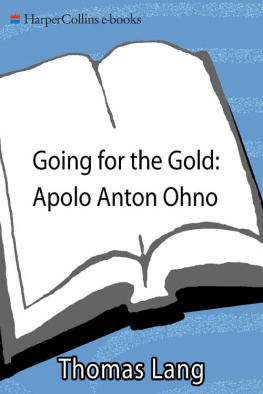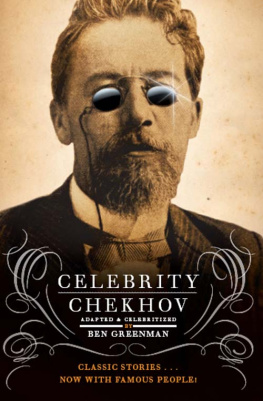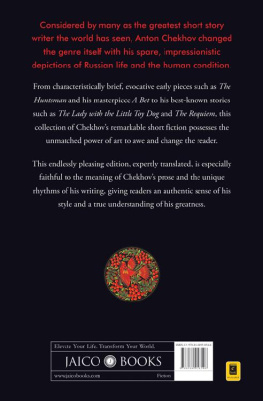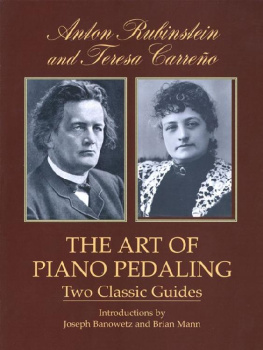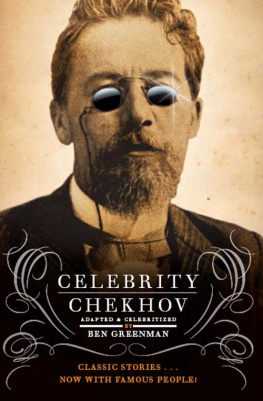Eando Binder - Anton York, Immortal
Here you can read online Eando Binder - Anton York, Immortal full text of the book (entire story) in english for free. Download pdf and epub, get meaning, cover and reviews about this ebook. year: 1965, publisher: Belmont, genre: Science fiction. Description of the work, (preface) as well as reviews are available. Best literature library LitArk.com created for fans of good reading and offers a wide selection of genres:
Romance novel
Science fiction
Adventure
Detective
Science
History
Home and family
Prose
Art
Politics
Computer
Non-fiction
Religion
Business
Children
Humor
Choose a favorite category and find really read worthwhile books. Enjoy immersion in the world of imagination, feel the emotions of the characters or learn something new for yourself, make an fascinating discovery.
- Book:Anton York, Immortal
- Author:
- Publisher:Belmont
- Genre:
- Year:1965
- Rating:5 / 5
- Favourites:Add to favourites
- Your mark:
- 100
- 1
- 2
- 3
- 4
- 5
Anton York, Immortal: summary, description and annotation
We offer to read an annotation, description, summary or preface (depends on what the author of the book "Anton York, Immortal" wrote himself). If you haven't found the necessary information about the book — write in the comments, we will try to find it.
Anton York, Immortal — read online for free the complete book (whole text) full work
Below is the text of the book, divided by pages. System saving the place of the last page read, allows you to conveniently read the book "Anton York, Immortal" online for free, without having to search again every time where you left off. Put a bookmark, and you can go to the page where you finished reading at any time.
Font size:
Interval:
Bookmark:
Eando Binder
ANTON YORK, IMMORTAL
CONQUEST OF LIFE
1
The latter half of the 19th Century was a period of scientific giantsRamsay, Bequerel, Roentgen, Einstein and othersbut history does not mention Matthew York.
While the chemists outdid nature with synthetic products, while the physicists toyed with the amazing electron and the mathematicians groped into eternal secrets of the cosmos, Matthew York searched for a great scientific arcanum.
A brain highly stimulated by chronic hyperthyroidism, pushed his investigations ahead in leaps and bounds, but it also burned him out before his time. Long years of intensive search and labour eventually crystallized into results.
Like a pilgrim who at last nears his Mecca, Matthew York knew, at the end, that his fingertips were at the door beyond which lay the secret. He knew at the same time, with resigned bitterness, that he would not live to open the door more than a crack.
Give me ten more years! he moaned to the Universe at large. Ten paltry years, and I will give you back a thousand!
But that was not to be, and Matthew York, like Columbus, was to die unknowing that he had reached the shores of a new land, though he had seen them in the distance.
At twenty-five, Anton York, the son of Matthew York, was tall, physically perfect, mentally alert, with a budding scientific career already launched. At thirty he was healthier, if possible, and deep in the intricacies of electromagnetic waves applied to destruction. He sought a weapon so deadly that its use would teach the utter futility of war.
For Anton York had been in the World War. His grim experiences in that inferno of hate had left festering scars on his sensitive mind. He searched with all the passion of a fanatic for a Jovian weapon that would either end civilization or bring it everlasting peace.
Gradually it became apparent to him that he must be singularly blessed with physical good health. At times he wondered vaguely about it. It was hardly natural. Long hours in the laboratory, weeks of intensive, mind-shattering labour failed to weaken his superb vitality.
At thirty-five he reached his prime, with not a days sickness behind him since childhood. It was as though some diligent guardian angel kept him free of the diseases that exacted their toll of all others around him. His researches had resulted in the development of a fused beam of ultrasound and gamma-raysthe long-sought goal.
Yet he did not reveal his discovery. It was too destructive, too likely to bring about chaos. He shelved it in utter secrecy, destroyed all recorded data, kept only the key formula in his mind for future use.
In conjunction with this ultra-weapon, he also developed a super-refractive alloy which he patented for a small fortune. Thereafter he did not have the annoyance of financial insufficiency to hinder his personal researches. He abandoned the academic duties that had previously earned him a livelihood, and settled himself in his own laboratory.
At forty-five he had not aged at all, it seemed. He married a young and beautiful girl of twenty-five, one who instinct told him would not hold him back in his scientific endeavours. They looked like a well matched couple of equal age, for York seemed possessed of that elastic youthfulness with which some people are so fortunately endowed. Yet at times he caught himself wondering whether it was fortune or something else.
Ten years of research on liquid and solid rocket fuels had convinced him space travel would not be achieved by that clumsy, wasteful means. The answer, if answer there was to be, lay in solving the secret of gravitation.
At fifty-five he had made some steps, purely theoretical, toward the solution, but realized it might take several lifetimes to reach the fundamental basis necessary for an enduring analysis. He was like Anaxagoras, who had conceived an atomic theory, two thousand years before mankind had had a science capable of testing it.
Vera, he said to his wife one day as she brought sandwiches to him in his experimental laboratory, gravitation is like a planetary hypnotism, just as amazingly effective, and just as intangible. Just what it is I havent yet determined, not even in theory. As far as Ive gone, it seems to be a directive field of attraction between masses of matter. By directive, I mean radiating from points, rather than just filling space haphazardly, like the cosmic rays. Now theres a strong clue
Vera interrupted him. Yes, dear, but drink your coffee before it gets cold.
Vera, that clue is a will-othe-wisp Ive been chasing down for ten years without success, he persisted. It is very likely to take ten more tens of years. If only I had another lifetime ahead of me.
To look at you, you have. His wife was not merely flattering him. Her voice was serious, vaguely troubled. Im just thirty-five, and thats the age you look, yet you are fifty-five.
I know, I know, murmured York, without elation.
If it keeps up, Veras voice wavered, Ill be looking older than you in a few more years. Everybody comments on your youth, dear. They even call you a Dorian Greyonly in looks, of course, not character. Why, Tony, what
York had dropped his sandwich, fingers nerveless. His face was pale.
If it keeps up! he cried, repeating his wifes phrase. If it keeps up,
Tony, I dont understand.
Neither do I, York told her earnestly. Vera, I havent spoken much about my childhood, but theres one thing that has haunted my subconscious mind like a vivid dreamthe night when my father inoculated me with a solution that made me very ill for a month. It was a glowing liquid, that solution, as if a diamond had been dissolved in it. He called it an Elixir.
Yorks eyes grew misty with past memories.
My father was a great scientist, greater than the world ever knew. He set himself a goalthe secret of life. He did strange things with mice and fruit flies, with his serum. Once he dipped some inoculated mice into a bath of deadly germ-laden fluid. The creatures lived on, undiseased.
He sprang up.
In the name of God, what did his serum do to me? Why should I alone be free of disease? Why do I look like thirty-five at the age of fifty-five? What does it mean? I must find out!
Find out, but how? ventured his wife. She was always awed by her husbands immunity to disease and senility, but she had trained herself to ignore the subject.
From my fathers diary perhaps, or from his research notes. My aunt still has his papers. Ive neglected to make a careful study of his notes. Now Im going to make a thorough search for some clue to the mystery!
2
BUT it was not just a clue that York found as he meticulously examined Matthew Yorks voluminous data. It was the keystone of his quest itself. The entry in his fathers diary for the day Anton York remembered so vividly, read in part:
Although it was against my better judgment, some madness seized me this night, and I injected 10 c.c. of a 50% water solution of the Elixir (leaf 88A, book G-4) into Tonys left arm. I dont know what the result will be. God! I just dont know. No use to curse myself any more. Its done and only the future can give answer. In about six months, blood tests of Anton will indicate to what extent the Elixir has taken effect. Its cruder form, when it didnt kill my guinea-pigs, gave the sign of total disease resistance within that period. So in a half year Tony will either carry blood of high radiogenic capacity, or he will be dead. Dear God, not the latter! One thing I cannot get out of my mind is that my Elixir has connections with longevity.
Number 277-B-3 of my guinea-pig, after inoculation, lived twice the normal span of life. And that was with the crude C4 Elixir. Is it possible, that in protecting protoplasm from disease by increased energy of radiogens, in the body, the Elixir also prevents the decay of vitality? Preserves youth perhaps? If so, what will my Elixir M.7, just perfected, do to my Tony? Increase his life span, perhaps, tono, I wont speculate. I am a scientist, not a prophet. Yet there must be some factor of longevity, in the Elixir.
Font size:
Interval:
Bookmark:
Similar books «Anton York, Immortal»
Look at similar books to Anton York, Immortal. We have selected literature similar in name and meaning in the hope of providing readers with more options to find new, interesting, not yet read works.
Discussion, reviews of the book Anton York, Immortal and just readers' own opinions. Leave your comments, write what you think about the work, its meaning or the main characters. Specify what exactly you liked and what you didn't like, and why you think so.

